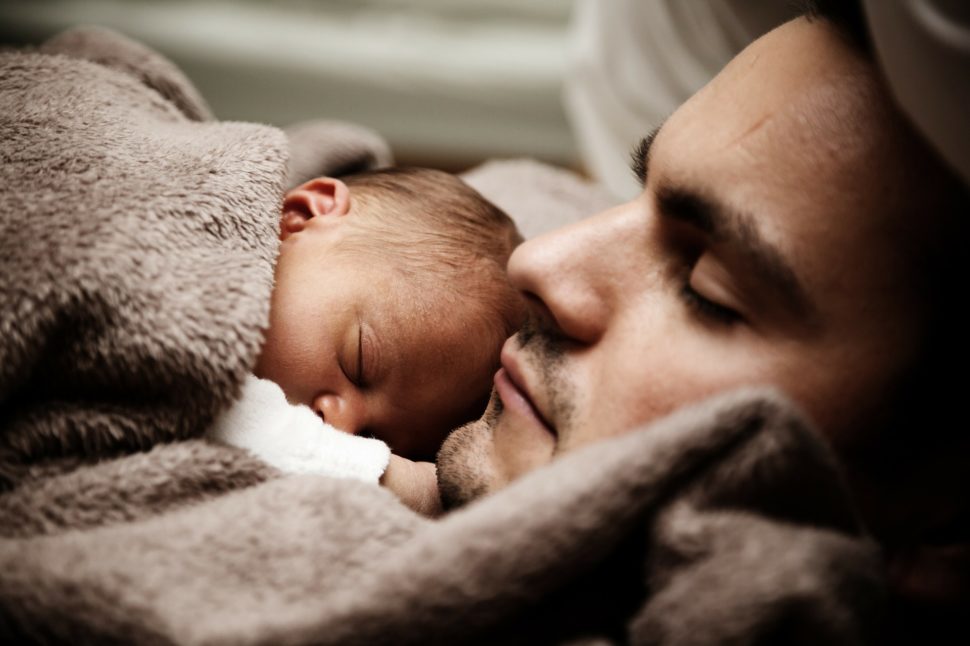Touch starvation is a real thing, but it may originate earlier than you think.
What is touch starvation? It’s a symptom of a bigger culture revolving around solitude, isolation, and willful lack of physical contact. The iteration of the Internet of Things where people stay engaged with their devices more than with their family may only exacerbate existing issues, but new research could work to ameliorate the culture against comfort.
How can a cuddle change your child’s DNA and impact their development?
#Cuddles Changing DNA? Science Says YesClick To TweetA History of Research into Touch Starvation
Anecdotal evidence is never the strongest. But as a result of touch starvation, I grew into a touch starved adult. I suffered immense self-esteem and physical appearance issues, as well as body dysmorphia. This, put in the context of studies done to diagnose the effects of touch starvation, lit up many lightbulbs for me.
As early as 1922, psychologists conducted studies dealing with comfort starvation. Harry Harlow, one of the first to experiment with touch deprivation on rhesus monkeys, laid the groundwork for modern studies on the subject. Of course, as with the experiment involving Little Albert, early psychological studies weren’t the most humane. Despite the morally grey area, the results spoke volumes.
A study conducted in 1988, as laid out in the New York Times, reported that premature infants who were massaged at equal intervals three times a day showed improvements other infants did not. The comforted infants gained weight 47% faster than their peers and could be discharged sooner. This saved the parents around $3,000 in hospital costs. Today, that number would be around $6,000.
Not only that, the infants showed developmental gains post hospital, too. Due to the success of the study, neonatal touch therapy is now a service that saves people up to $4.7-billion USD worldwide every year.
Negative Effects of Comfort & Cuddle Deprivation
Many studies–both of the benefits of touch and the detrimental effects of touch deprivation–succeeded the neonatal touch therapy study. One from 2000, one from 2010, and earlier studies like this one from 1970. Due to comfort deprivation, all of the results pointed to stunted emotional growth.
Some suggest that Somatosensory Affectional Deprivation leads to drug and alcohol abuse. A lack of parental affection can lead to RAD or Reactive Attachment Disorder. This can actually affect a child’s grey matter in their brain, exacerbating early issues throughout their lives.
A study wherein strangers had to guess emotions based on one to two-second touches on their arm produced especially interesting results. While most of the subject guessed compassion correctly about 60% of the time, there were definitive results based on gender. “When a woman tried to communicate anger to a man, he got zero right…” says Dacher Keltner of UC Berkeley.
Even detecting the emotions of a partner may also come down to “intelligence genes“.
Beyond the cognitive and emotional detriments, touch-starved patients actually stand a higher risk for certain physical ailments, too. Researchers created a disease risk index based on the following factors:
- blood pressure
- heart rate
- stress hormone
- cholesterol
- waist circumference
- inflammation
- blood sugar regulation
Patients who reported more frequent instances of parental affection (comfort and cuddles) seemed to be at lower risk for various diseases. Teresa Seeman, one of the researchers for this project from UCLA, summarized the study:
“Our findings highlight the extent to which these early childhood experiences are associated with evidence of increased biological risks across nearly all of the body’s major regulatory systems.”

Positive Effects of Physical Affection on Development & Health
Conversely, children who had a regular cuddle session with their parents showed beneficial evidence on the molecular level. The genetic discrepancies lie in DNA methylation or epigenetics. It essentially relates to how cells grow and develop in young children.
Researchers found that the amount of affection children received affected the very way their genes expressed themselves. Methyl groups can inhibit transcription, so they can act as “dimmer switches”, as the home of the study (University of British Columbia) puts it.
Other studies suggest a link between poor health and this disparity between chronological age and a child’s “epigenetic age”. In tandem with what we know about how physical comfort can affect psychological development, this is huge. A cuddle (or the lack thereof) can literally change a child’s DNA–or, more appropriately, how DNA is able to express itself.
Could a Culture Shift Toward Comfort Improve Overall Health?
Remember that thing we mentioned earlier that wasn’t so rad? The effects of RAD can be ameliorated by moving the affected child into a more stable and supportive environment. Augments for physical effects of touch starvation may not be so “easy” to come by in terms of concrete definitions.
A major buzzword in the ether these days is “empathy” or, more importantly, people’s lack of it.
We can teach empathy via touch. Perhaps this is why many men were not able to discern when a woman wanted to convey anger with a touch? Men do not have the same emotional or physical relationships with friends and family members as many women do.

We could improve infant physical and psychological development. We could boost IQ, too. But in order to reap the benefits of physical comfort, we must shift our cultural perspective of how touch operates. PDAs such as hand holding are still treated as inappropriate sometimes. Breastfeeding a child is still considered a public nuisance by some. And forget about two guys hugging.
I’m clearly speaking hyperbolically for effect here, but you know plenty of people who have made pejorative statements about any or all of these things I just mentioned. If we can adjust the way we approach a cuddle to display comfort with friends, family, and children, perhaps we can augment our current culture that trends toward physical isolation.



















Comments (0)
Least Recent